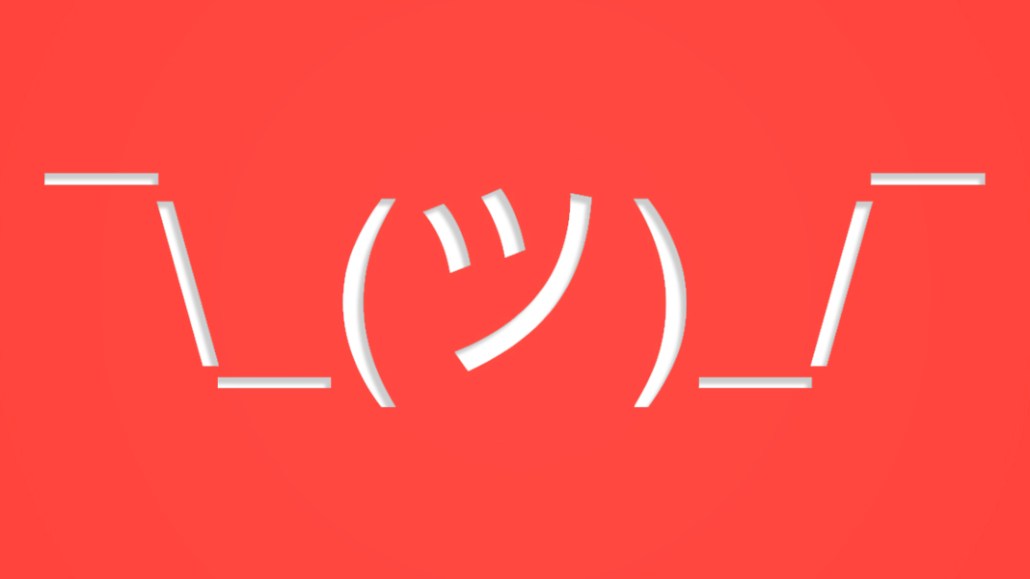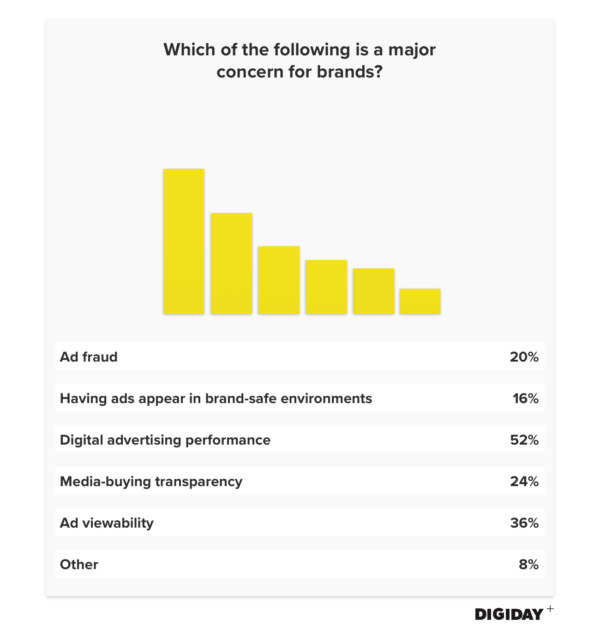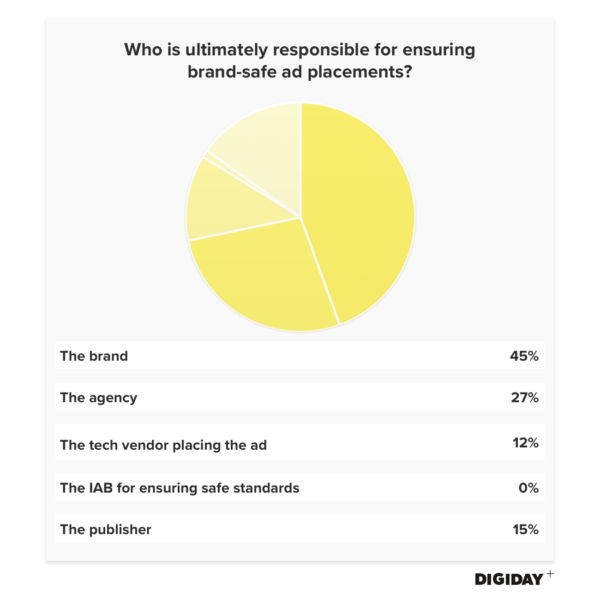Secure your place at the Digiday Media Buying Summit in Nashville, March 2-4
Digiday Research: Only 16 percent of brands say brand safety is a major concern

This research is based on unique data collected from our proprietary audience of publisher, agency, brand and tech insiders. It’s available to Digiday+ members. More from the series →
At the Digiday Marketing Summit in December, we sat down with over 30 industry executives from major brands across the U.S. to discuss developing trends such as making branded content work. Check out our earlier research on how confident brands are about branded content’s efficacy here. Learn more about our upcoming events here.
Top findings:
- Only 16 percent of brands think brand safety is a major issue.
- The majority of brands believe campaign performance is the only major issue brands face in digital advertising.
- Brand marketers are most likely to believe brands themselves are ultimately responsible for ensuring brand safety.
Disaster strikes. A brand’s ad is found next to objectionable content, whether it’s an extremist video, a so-called alt-right news site or a Logan Paul video. Brands have a predictable and well-rehearsed response: Public relations executives will make generic statements about how their company is “deeply upset” and “concerned” about being associated with something so contrarian to its values, promising to “ensure all necessary steps are taken” so it doesn’t happen again.
But let’s be honest. Brand safety isn’t a priority for most brands. Digiday research found that making sure ads appear beside brand-safe content is a major concern for only 16 percent of surveyed brands. What brands do care about is campaign performance. Ensuring media campaigns hit targets is the only issue that concerned the majority of brands.

Marketers’ prioritization of campaign performance is good news for major platforms. Brands might not miss traffic from smaller sites such as Breitbart.com if they suddenly stopped advertising there, but platforms with hundreds of millions, if not billions, of users are simply too big to lose. Some brands, including Adidas, were quick to react and pull their ads off of YouTube amid its brand-safety scandals last year, but many expect those advertisers to return. In an earlier interview with Digiday, Stéphane Bérubé, L’Oréal’s CMO for Western Europe, highlighted brands’ conundrum: “We [L’Oréal] can’t say we’re not going to use this channel because of certain issues [like brand safety]. At the end of the day, consumers are there.”
Not only do major platforms have massive audiences, they also perform well for digital campaigns. Thirty-five percent of brands are expected to increase spending on YouTube in 2018, according to Digiday research.
Some brands say they’re more aggressively battling brand safety problems. Proctor & Gamble CMO Marc Pritchard has dedicated 2018 to resolving the issue, slashing the company’s digital ad spend and the amount of demand-side platforms it uses until such concerns are mitigated.
Technical challenges make addressing brand-safety issues increasingly complicated, but many brands believe they’re ultimately responsible for tackling them. Respondents to Digiday’s survey were more likely to believe brands, rather than other digital media entities, should be held accountable for ensuring brand safety. If brands decide that brand safety is a major concern, actively learning the complexities of media buying instead of offloading media spending with agencies and trading desks could help address the issue.

More in Marketing

Thrive Market’s Amina Pasha believes brands that focus on trust will win in an AI-first world
Amina Pasha, CMO at Thrive Market, believes building trust can help brands differentiate themselves.

Despite flight to fame, celeb talent isn’t as sure a bet as CMOs think
Brands are leaning more heavily on celebrity talent in advertising. Marketers see guaranteed wins in working with big names, but there are hidden risks.

With AI backlash building, marketers reconsider their approach
With AI hype giving way to skepticism, advertisers are reassessing how the technology fits into their workflows and brand positioning.





